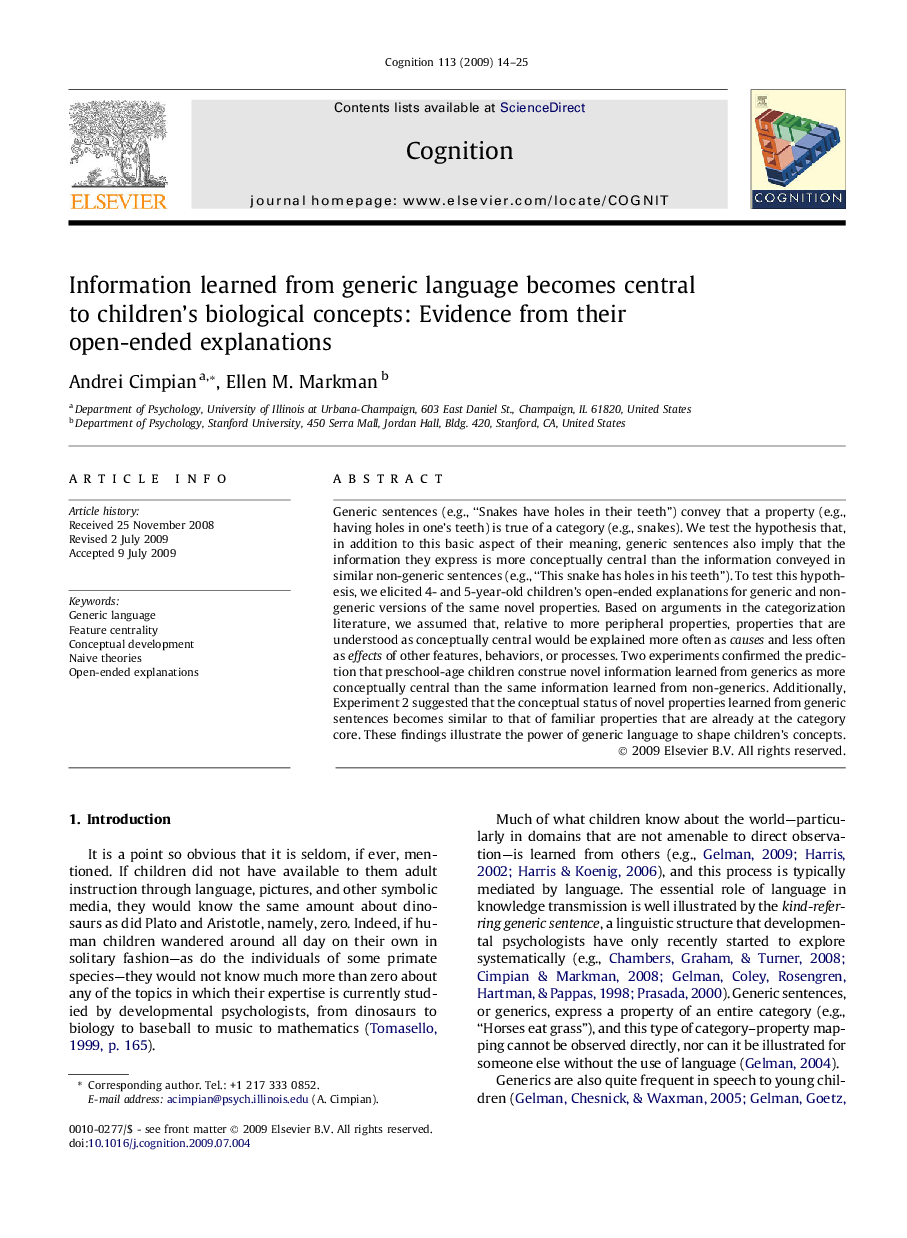| کد مقاله | کد نشریه | سال انتشار | مقاله انگلیسی | نسخه تمام متن |
|---|---|---|---|---|
| 927244 | 921956 | 2009 | 12 صفحه PDF | دانلود رایگان |

Generic sentences (e.g., “Snakes have holes in their teeth”) convey that a property (e.g., having holes in one’s teeth) is true of a category (e.g., snakes). We test the hypothesis that, in addition to this basic aspect of their meaning, generic sentences also imply that the information they express is more conceptually central than the information conveyed in similar non-generic sentences (e.g., “This snake has holes in his teeth”). To test this hypothesis, we elicited 4- and 5-year-old children’s open-ended explanations for generic and non-generic versions of the same novel properties. Based on arguments in the categorization literature, we assumed that, relative to more peripheral properties, properties that are understood as conceptually central would be explained more often as causes and less often as effects of other features, behaviors, or processes. Two experiments confirmed the prediction that preschool-age children construe novel information learned from generics as more conceptually central than the same information learned from non-generics. Additionally, Experiment 2 suggested that the conceptual status of novel properties learned from generic sentences becomes similar to that of familiar properties that are already at the category core. These findings illustrate the power of generic language to shape children’s concepts.
Journal: Cognition - Volume 113, Issue 1, October 2009, Pages 14–25